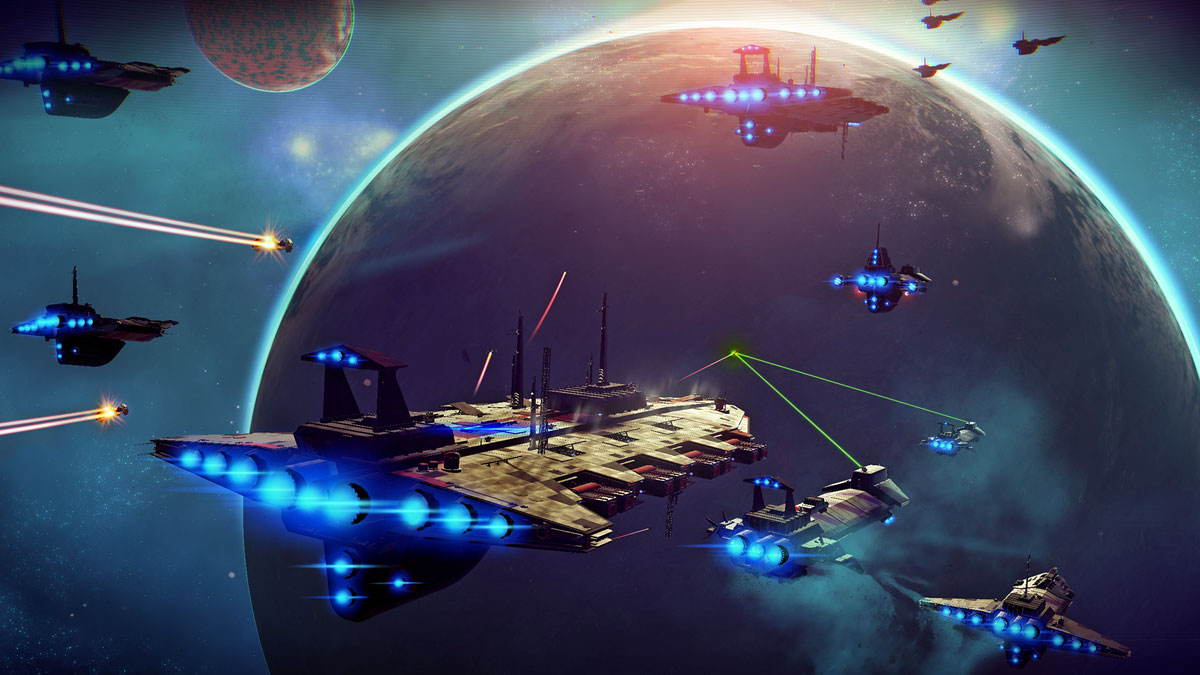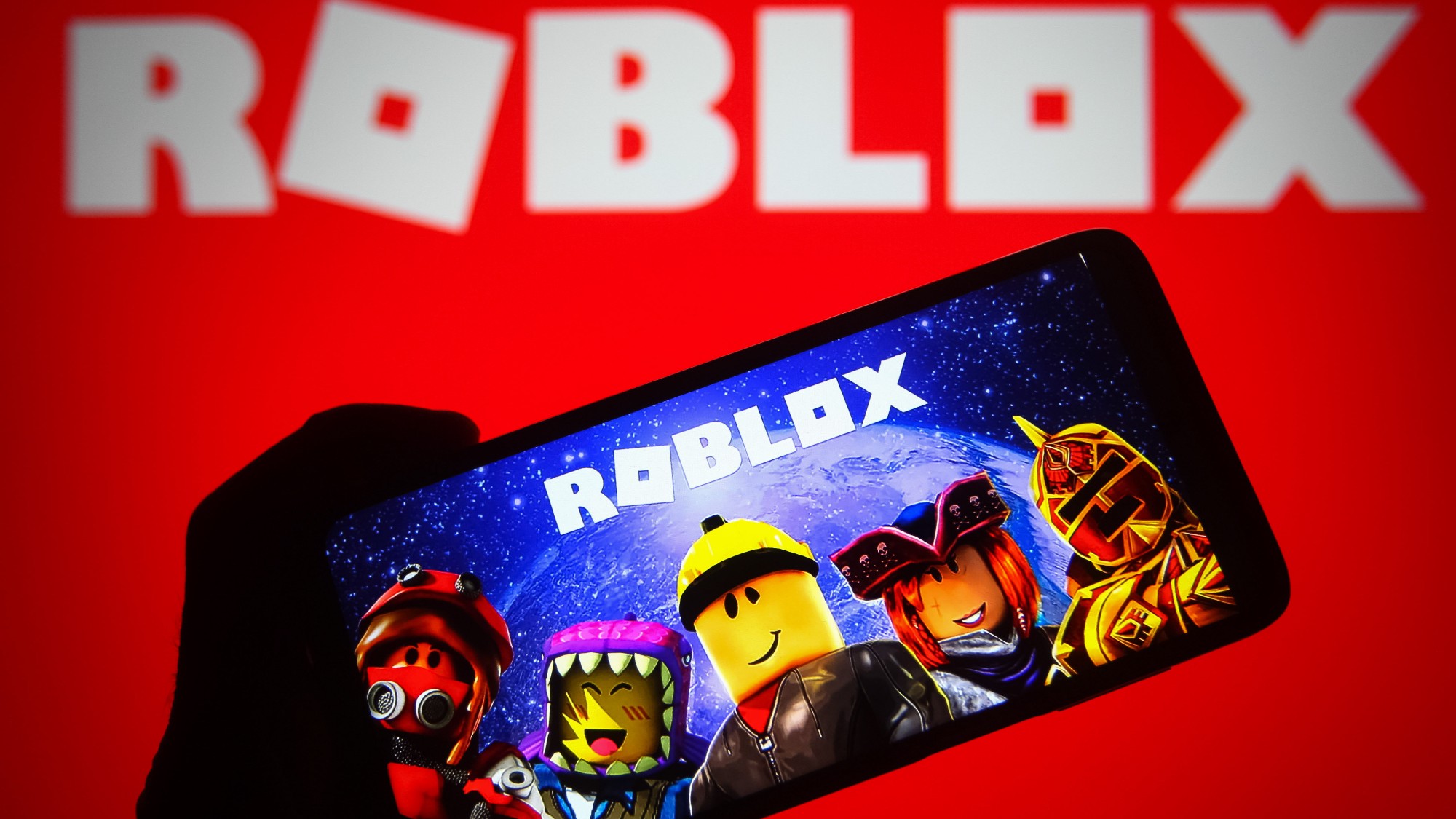No Man's Sky: What is it and best tips
Lost in space? Here are some pointers that will quickly have you up and running

A free daily email with the biggest news stories of the day – and the best features from TheWeek.com
You are now subscribed
Your newsletter sign-up was successful
No Man's Sky is now out - it's even has its first patch - and keen gamers have wasted no time discovering the near infinite number of star systems, planets, creatures and elements waiting to be explored in the procedurally generated, fully functioning universe.
Wannabe space-farers have discovered more than ten million unique species occupying a tiny fraction of the game's 18 quintillion planets. There's even been an exceptionally rare encounter between two players.
The infinite scale and possibilities paint a picture of a fast-paced game with gamers shifting from system to system. However, by most early accounts, No Man's Sky is actually a bit of a slow burner. It requires time and attention to successfully manage resources, make discoveries, trade and ultimately find the centre of the galaxy.
The Week
Escape your echo chamber. Get the facts behind the news, plus analysis from multiple perspectives.

Sign up for The Week's Free Newsletters
From our morning news briefing to a weekly Good News Newsletter, get the best of The Week delivered directly to your inbox.
From our morning news briefing to a weekly Good News Newsletter, get the best of The Week delivered directly to your inbox.
To get started, here are a few tips from around the web:
Get your scanner up and running
The top tip being issued by most sites, such as VG247 and Geek, is to place a priority on your scanner from the get go. This will make gathering the resources you'll need to repair your ship and fuel it much easier.
To find out what pieces you need, open up your multi-tool inventory and hover over the broken item – it'll tell you the isotope required. Luckily, it's one of the most abundant in the game and can be found with a little common sense.
A free daily email with the biggest news stories of the day – and the best features from TheWeek.com
Keep an eye on your inventory and equipment
The amount you'll be able to carry in your suit and ship won't be particularly big, so make sure you collect the essentials needed to leave your starter planet first - using your fixed scanner to scope out the goods - and keep an eye on how your storage is filling up.
The random nature of the game means many players will start on harsher planets with more dangerous environments, so it's essential to watch life-support systems. Players on temperate planets with non-toxic environments will have little worries, while others will be plunged straight into a cycle of harvesting elements to keep the systems in top shape.
Buy low and sell high
Making money - called units - is fairly simple.Firstly, the prices of certain goods, materials, and elements will fluctuate depending on where you're trying to sell them, so don't feel the need to sell instantly for a quick buck, especially with items that can command high value, such as gold.
Secondly, Trusted Reviews tells players that if they come across a trader offering 99 per cent above market value on something, "drop everything and gather as much as you can" – either through mining or buying cheaper elsewhere to sell on.
Another way to make big sums of cash is through discovery. Each planet has a 250,000 credit bonus for completing the discovery logbook found in the pause menu.
Remember to save your game
The last tip is simply to remember to save your progress. No Man's Sky doesn't really have an autosave and archiving is achieved through beacons and checkpoints that you have to find and access manually. However, you'll find plenty of them on planets and space stations.
Once you've got your bearings and done a fair bit of interstellar travel, you'll want to delve a little deeper into the game's lore and mechanics - learn the languages of the three races who seemingly own the universe, for example, and make enough money to buy a bigger, more powerful spacecraft.
Alphr has put together a big list of top tips for players getting into their stride. Here are some of the best:
Make use of Black Holes
If voyaging to the centre of the galaxy is your prime objective, then don't be put off by space abnormalities such as Black Holes – dive straight in.
You won't be spaghettified, as science suggests, but will travel a huge distance, eventually popping out the other side in a solar system much further away than you could ever get by using warp drive. They're not common, but an icon will appear if one shows up.
Make up ground quicker – literally
One of the most frustrating things about exploring planets is simply how long it can take. Your character will walk fairly slowly and even with your stamina maxed out, you won't run for long.
Alphr points out a "hidden boost thrust" that supposedly makes exploring points of interest much faster. Hit your melee button right before engaging sprint and you'll heave forward at a far quicker rate of knots, a tip that should make excursions on unwelcoming planets a little easier.
Take time to learn the game's languages
It's all too tempting to push on relentlessly in search of the best places to mine, explore and trade, but taking a little time out to get to learn space lingo is recommended.
There three space races each have a language and knowing how to converse is essential for parts of the game. Knowledge stones are your best bet and the most common way to learn; you'll find them dotted around planets. However, ruins, monoliths, plaques and even jumping right into conversation will boost your intergalactic diction.
No Man's Sky: What's it about and is it any good?
09 August
Three years after it was first announced, No Man's Sky is set to release in the UK tomorrow and early review copies of the game have been in the hands of the gaming press.
The space exploration game promises no two players will have the same experience. Play is based around four key elements - exploration, crafting, survival and trading - and gamers can explore a procedurally generated universe of 18 quintrillion properly scaled planets, with a variety of lifeforms, star systems, comets, black holes, moons, space stations and more. The goal is to travel to the centre of the galaxy.[[{"type":"media","view_mode":"content_original","fid":"98641","attributes":{"class":"media-image"}}]]
Polygon calls it "one of the most anticipated games of this generation, if not ever", given the size of the game and that so much of its content remains unknown, including to its developers.
Every player will begin their journey on a different planet on the fringes of a galaxy, with only a laser gun, a jetpack and a broken spaceship, says ARStechnica. Their first duty is to fix the spaceship to begin exploring. A hands-on tutorial guides players through the process of collecting materials, navigating terrain, crafting items and defending themselves.
However, everyone will be on a different planet, so how easy materials are to source and how easy it is to survive will lead to unique experiences right from the start. Some may have their ships up and running in no time, while others will struggle as there's no safety net and players could wake left for dead on a hostile planet.
The International Business Times says the introduction sets a slow pace, which is ideal not only for allowing players to get to grips with the game, but also serving as a reminder that No Man's Sky is a game about exploration and discovery, not combat and action, although galactic dogfights do exist.
Coinciding with the game's launch, PlayStation released a video featuring comedian Bill Bailey attempting to journey to the centre of a near infinite universe. The Never Mind the Buzzcocks and QI star describes the game as an "extraordinary experience" in which it is possible to "discover and name entire planets, as I did with Bill-topia."
[[{"type":"media","view_mode":"content_original","fid":"98708","attributes":{"class":"media-image"}}]]
No Man's Sky is "daunting in its scope", IB Times says, and its sheer size means it will take time to critique properly – something echoed by many publications.
In contrast to the potentially endless exploration aspect, Polygon says it is actually a survival game, with players needing to juggle a vast number of items and resources in order to discover new star systems. Get it wrong and they'll end up at the last checkpoint they visited – but will have to travel back to the spot where they died in order to pick up your items.
The lack of items players can carry and the quality of life support can be "kind of annoying" at the beginning, says the site, but the exploration aspects and "studying weird alien lifeforms and scanning them into a growing database" – one shared across all of the players – is enjoyable.
"While it takes a little while to travel from planet to planet, knowing absolutely everything you pass is accessible is quite mind-blowing," says The Independent. Even the tiniest white spec is a place you can theoretically visit.
The game's creators stress that No Man's Sky is not a multiplayer game and the chances of actually running into another gamer within the universe are virtually nil. There will be Easter eggs and hints to remind players that others are in the same universe, but core gameplay will see them explore space alone, except for some non-playable characters.
Overall, first impressions paint a picture of a game that's overwhelmingly huge – 99.9 per cent of the procedurally generated universe will never actually be seen. The vast potential for exploration has led many big gaming sites like GameSpot and IGN to mark up their initial impressions like diary entries, so a full verdict seems unlikely to be reached before the game hits shelves tomorrow. Watch this space…
-
 Local elections 2026: where are they and who is expected to win?
Local elections 2026: where are they and who is expected to win?The Explainer Labour is braced for heavy losses and U-turn on postponing some council elections hasn’t helped the party’s prospects
-
 6 of the world’s most accessible destinations
6 of the world’s most accessible destinationsThe Week Recommends Experience all of Berlin, Singapore and Sydney
-
 How the FCC’s ‘equal time’ rule works
How the FCC’s ‘equal time’ rule worksIn the Spotlight The law is at the heart of the Colbert-CBS conflict
-
 The most notable video games of 2025
The most notable video games of 2025The Week Recommends Download some of the year’s most highly acclaimed games
-
 Friendship: 'bromance' comedy starring Paul Rudd and Tim Robinson
Friendship: 'bromance' comedy starring Paul Rudd and Tim RobinsonThe Week Recommends 'Lampooning and embracing' middle-aged male loneliness, this film is 'enjoyable and funny'
-
 Mario Kart World: Nintendo Switch 2's flagship game is 'unfailingly fun'
Mario Kart World: Nintendo Switch 2's flagship game is 'unfailingly fun'The Week Recommends The 'thrilling' racer includes a range of new features including open-world exploration
-
 Roblox: new safety features leave kids 'at risk'
Roblox: new safety features leave kids 'at risk'The Explainer Gaming platform loved by children has been plagued by explicit content and grooming
-
 Cozy video games to help you unwind from the chaos
Cozy video games to help you unwind from the chaosThe Week Recommends Some games can go a long way in alleviating stress or anxiety
-
 The world's best astrotourism adventures
The world's best astrotourism adventuresThe Week Recommends From the depths of the Namib Desert to Finnish Lapland, these remote destinations are ideal for stargazing
-
 The Count of Monte Cristo review: 'indecently spectacular' adaptation
The Count of Monte Cristo review: 'indecently spectacular' adaptationThe Week Recommends Dumas's classic 19th-century novel is once again given new life in this 'fast-moving' film
-
 Death of England: Closing Time review – 'bold, brash reflection on racism'
Death of England: Closing Time review – 'bold, brash reflection on racism'The Week Recommends The final part of this trilogy deftly explores rising political tensions across the country